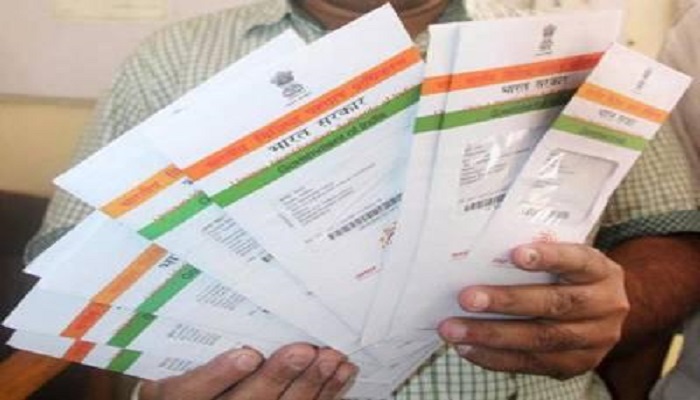
During the hearing of Aadhaar privacy case, the act is framed in such a way, with so many checks and balances, that even the authority wouldn’t know where the Aadhaar is being used, Mehta submitted. He was presenting his case against the backdrop of petitions challenging the mandatory use of Aadhaar as an infringement of privacy. Critics say the Aadhaar identity card links enough data to create a comprehensive profile of citizens and the data — containing fingerprints, iris scans and demographic information — can be misused.
This triggered a debate and a nine-judge constitutional bench led by the Chief Justice of India JS Khehar has been discussing whether privacy was a Fundamental Right accorded to citizens under the Constitution.
The ASG was representing the Unique Identification Authority of India (UIDAI), the panel that issues the unique enrollment number and Madhya Pradesh, before a bench that also consisted of Justices J Chelameshwar, SA Bobde, RK Agrawal, Rohinton Nariman, Abhay Manohar Sapre, DY Chandrachud, SK Kaul, and S Abdul Nazeer.
Justice DY Chandrachud highlighted the need for an overarching data protection law that guarantees the protection of personal data and ensures that it will be used only for the specified purpose.
The Centre responded that it has constituted a 10-member committee headed by former Supreme Court Justice BN Srikrishna to deliberate over and draft the proposed data protection bill. “The government is cognisant of the growing importance of data protection. The need to ensure the growth of the digital economy while keeping personal data of citizens secure and protected is of utmost importance,” said Mehta as he read out from the Office Memorandum appointing the Justice Srikrishna panel.
Members of the committee will also include: Chief executive officer (UIDAI) Ajay Bhushan Pandey; secretary Ministry of Electronics and Information Technology (ME&IT) Ajay Kumar, Aruna Sundararajan from the Department of Telecom (DoT), National Cyber Security Coordinator Gulshan Rai; and Dr. Arghya Sengupta, research coordinator, Vidhi Centre for Legal Policy.
Representing Maharashtra, Senior Advocate CA Sundaram submitted that the apex court was merely entrusted with interpreting the Constitution and the law. “Parliament and only Parliament can do it,” he said. “This is not a case of interpretation of the Constitution or the law. This is the case of introduction of a right as a Fundamental Right. This can be done only by Parliament.” Sundaram said that the right to privacy was limited to the physical body and did not include the mind.
To this Justice, Nariman responded, “How can you argue such a thing today. Instead of expanding the definition of privacy, you are contracting it. Privacy is expressly stated in the Universal Declaration of Human Rights. It is now our job to read it in the Constitution.” Justice Nariman also observed that the Constitution must be interpreted in such a way that it reflects “the felt needs of the times”.
“This cannot be done,” Sundaram said. Mehta who followed him concurred. Sundaram went on to observe that the Centre had introduced the Aadhaar scheme to disburse social benefits to the marginalised at the cost of their privacy. To this, Justice Chandrachud observed: “Are economic and political rights subservient to social benefits?”
Mehta reiterated the Centre’s submission that Right to Privacy was a common law right, protected by several statutory laws. “Several rights created the protection of the common law right (privacy). Merely because the protection is revoked is no ground for reading it as a Fundamental Right.”
“We should aim to use technology to the maximum for the betterment of human beings. About 115.15 crore people have enrolled in Aadhaar. That’s 98% of the population. The Aadhaar statute will take care of privacy violations. Do not elevate privacy to a Fundamental Right,” Mehta submitted.

Post Your Comments